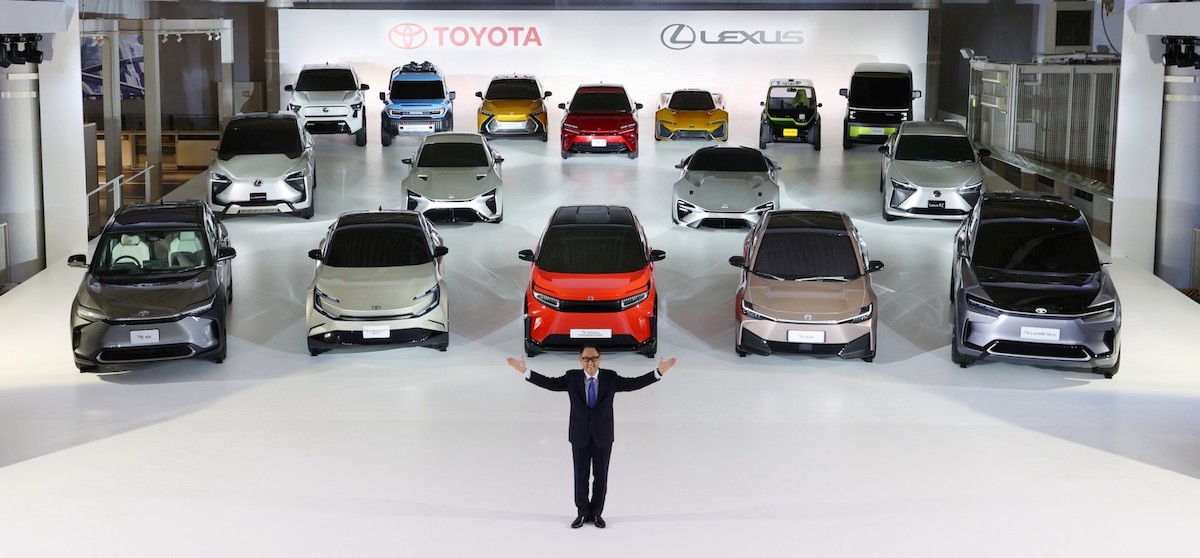- Toyota will reboot its EV strategy in response to Tesla
- Toyota has lagged behind the competition in the shift to EVs
- In response, significant changes will be made to Toyota’s platforms
Toyota is finally admitting that it might have miscalculated sums regarding the company’s electric vehicle strategy. Japan’s No 1 carmaker now says it will reboot its plans to launch 30 battery electric vehicles by 2030 in response to the unexpectedly rapid proliferation of EVs on the world stage, according to a new report.
And at the root of Toyota’s decision-making is Tesla’s success, the game-changing EV carmaker that has now forced the world’s top manufacturer to bite the bullet and recalibrate.
In December 2021, Toyota and Lexus revealed 15 concept cars destined to spearhead its electric vehicle strategy to sell 3.5 million EVs a year by 2030. Many of us in the media considered this figure to be a tall order a year ago. Now Toyota has finally realized the error in their ways and says it will make a midstream course correction. For years, Toyota has lagged behind the competition in the shift the EVs, despite being an early champion of hybrid and hydrogen fuel cell technologies.
Toyota reportedly has a working group evaluating significant changes to its EV platforms that will revamp its EV plan. However, the firm has now axed some of these projects to simplify its plans in the interest of speed and cost-effectiveness. These supposedly include the Compact Cruiser and battery-electric Crown.
A group has also been established to make the e-TNGA platform more cost-effective. This underpins the electric Toyota bZ4X crossover and the upcoming Lexus RZ, as well as the bZ4X’s twin sister, the Subaru Solterra.
This platform is a derivative of Toyota’s New Global Architecture, designed so that electric vehicles can be produced on the same lines as gasoline and diesel models—such as the Toyota RAV4.
Measures being considered to reduce production costs include simplifying the e-TNGA’s thermal management system by merging its passenger and powertrain cooling.
Meanwhile, the working group is also considering the early retirement of e-TNGA in favor of a dedicated EV platform, to account for increased demand. A new platform could arrive in roughly five years, although one source said “there is little time to waste.”
Developments made to accommodate the rapid rise in demand for EVs would be benchmarked against industry giant Tesla in light of the brand’s “rapid-fire adoptions of cutting-edge innovations”.
Its first mass-market battery-electric model, the bZ4X SUV, was launched earlier this year but its roll-out was delayed due to a recall concerning a risk that its wheels hubs could detach whilst driving.
OUR THOUGHTS
This is a move that Toyota should have made a decade ago. Let’s just hope the horse has not bolted. That Toyota is now reported to be accelerating its electrification plans to chase Tesla’s growing hold on the EV market is an unfortunate blemish on its record of successful hybrid and plug-in hybrid tech. You almost feel like saying “I told you so.” Because if Toyota ever needed a lesson in how to mass-market an EV, they need go no further than Tesla’s example.
